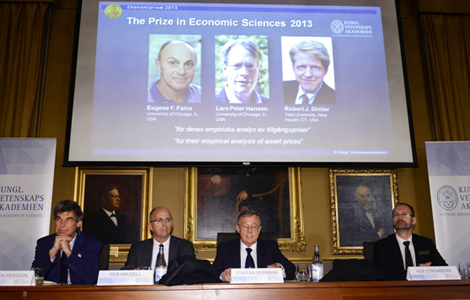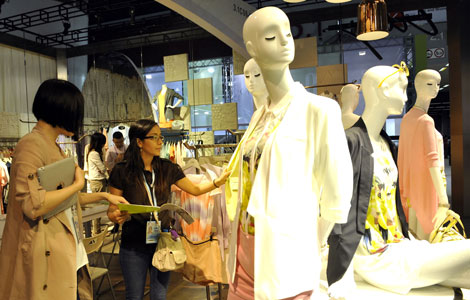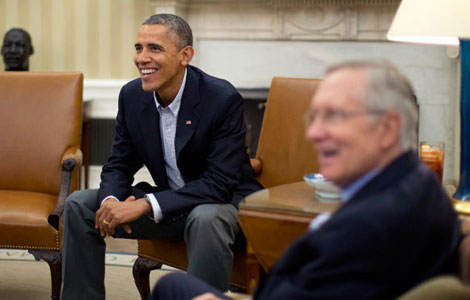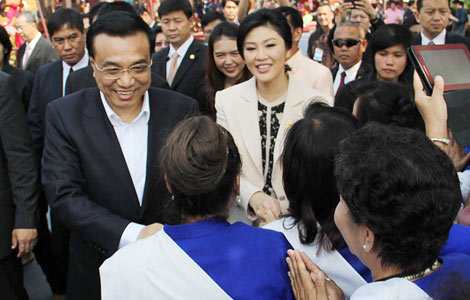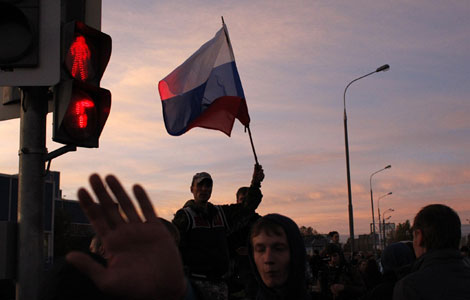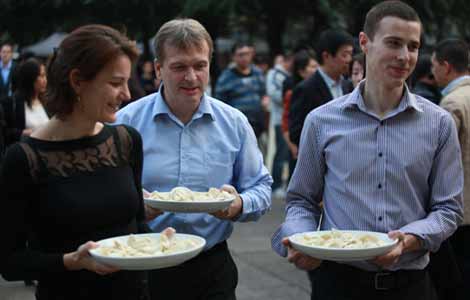Sept CPI rise hits 7-month high
Updated: 2013-10-15 00:14
By Chen Jia (China Daily)
|
||||||||
Although inflation rose to a seven-month high in September, it was within the comfort zone for China's economy and will not lead the government to revise its reform policies, economists said.
The National Bureau of Statistics reported on Monday that the consumer price index, the main gauge of inflation, increased 3.1 percent year-on-year in September, compared with 2.6 percent in August.
The figure is higher than the average of 2.8 percent forecast by financial institutions. However, Qu Hongbin, HSBC co-head of Asian economics research and greater China chief economist, said the September figure is still lower than the alarm line of 3.5 percent.
In the third quarter, China's CPI averaged 2.8 percent, compared with 2.4 percent in the first and second quarters.
Most noticeably, food prices, which account for about 30 percent of the CPI calculation, grew by a 16-month high of 6.1 percent in September from a year earlier, which the bureau attributed to strong seasonal demand and disruptive weather conditions.
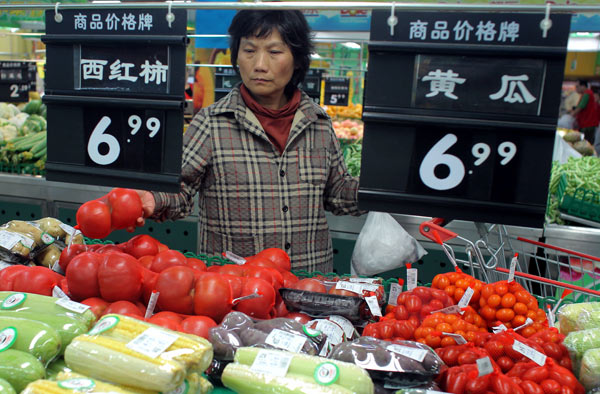 |
|
A woman pickes tomatoes in a market. PHOTO: Wang Jing / CHINA DAILY |
Non-food prices increased by 1.6 percent year-on-year, compared to 1.5 percent in August, the bureau said.
Tang Jianwei, a senior economist at the Bank of Communications, predicted that the CPI is likely to continue rising in the fourth quarter.
"CPI growth in October to December will be moderate as domestic demand has not largely rebounded, food prices may maintain a benign rise, and there is less imported inflation," Tang said.
In September, the producer price index, an indicator of industrial production inflation, declined 1.3 percent year-on-year, compared with a 1.6 percent decrease in August, thanks to moderate improvement in domestic demand, the NBS said.
"With PPI having remained in negative territory for 19 consecutive months, upstream price pressure will continue to be manageable," said Ma Xiaoping, an HSBC economist.
JPMorgan Chase & Co forecast that the full-year CPI is likely to stand at 2.7 percent, much lower than the government's target of 3.5 percent.
Zhu Haibin, chief economist in China at JPMorgan, said, "The relatively benign inflation dynamics suggest that stabilizing growth and economic reform remain the priorities for policymakers in the near term."
While September CPI rose above 3 percent, it is unlikely to trigger changes in monetary policy, said Zhu.
"We expect no change in benchmark interest rates and the reserve requirement ratio throughout the year, and credit growth will moderate further," he said.
Because of the rebound of domestic and external demand, the recent economic indicators including industrial output, fixed-assets investment and the manufacturing purchasing managers' index all showed positive signals.
Economists said that China's economic growth is expected to accelerate slightly in the third quarter. They predicted that GDP growth may rebound to 7.6 to 7.8 percent in the third quarter, up from 7.5 percent in the second.
Ding Zhijie, dean of the School of Banking and Finance at the University of International Business and Economics, said that although the economy has improved in the short term, the long-term challenges require the government to further improve structural reform.
"Credit expansion is no longer efficient to support sustainable economic growth. The government should focus on eliminating excess industrial production capacity and lower the threshold for private capital to enter the service industry, which can release new economic growth energy," Ding said.
Duncan Freeman, a senior research fellow at Brussels Institute of Contemporary China Studies, said the latest CPI figure shows a degree of volatility, and may not indicate a trend for higher inflation.
But the PPI figure reflects a problem, suggesting a continued imbalance between insufficient demand and overcapacity in many sectors of the economy, he said.
Kamel Mellahi, a professor of strategic management at Warwick Business School in the UK, said one should not read too much into the latest CPI figure.
"The increase in CPI reflects, to a very large extent, recent bad weather that decreased food inventory, which subsequently drove food prices up. We witnessed the same thing back in February when CPI jumped to a 10-month high because of seasonal spending during the Lunar New Year."
Read more
Rising prices pressure shoppers
Zhang Chunyan in London contributed to this story.
chenjia1@chinadaily.com.cn
Most Viewed
Editor's Picks

|

|

|

|

|

|
Today's Top News
Holding a mirror to China's economy through cosmetics
Row over NASA's China ban should be wake-up call
Chinese may have discovered the future of batteries
UK 'open' to Chinese nuclear investment
All 86 tourists evacuated from Mount Qomolangma
Obama hopeful as meeting nears
Canton Fair to promote yuan use
Over 380 detained in Moscow riot
US Weekly

|

|


